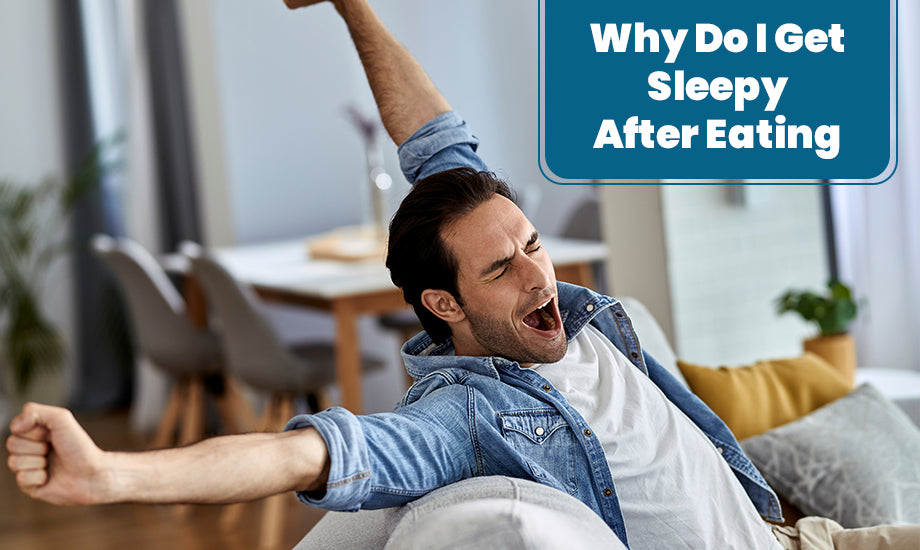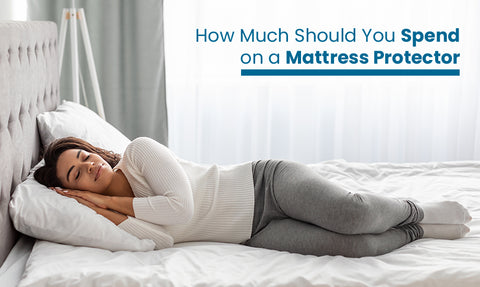
Ever thought that everyone feels so uncomfortable after eating? Isn't it natural to want to sleep for a long time after eating? Ever wonder why it always happens? So, today you will learn what happens to our bodies after we eat and how it always leads to sleep.
So, the majority of people have experienced heavy eyelids immediately after a substantial meal. It's normal to ask what specifically causes tiredness after eating, whether it's a holiday meal or a holiday breakfast. Fortunately, if post-meal fatigue doesn't affect someone's ability to function at work, school, or in their social life, it might not be a problem.
Also, a post-lunch slump in energy, however, can occasionally have negative effects on job productivity and increase the likelihood of accidents, including auto collisions. Additionally, a sleep condition or underlying health issue might occasionally be the root of excessive drowsiness.
Postprandial Sleepiness

A person's eating habits, such as when, how much, and how he or she eats, can influence whether sleepiness develops after a meal. Understanding postprandial sleepiness will help you understand why people become tired after eating, what foods might make you drowsy, and how to prevent postprandial sleepiness.
Postprandial sleepiness is the feeling of drowsiness or fatigue that often occurs after eating a meal. This is a common phenomenon that can affect people of all ages and is usually temporary. It is believed to be caused by a combination of factors, including the body's natural circadian rhythms, the release of hormones such as insulin and serotonin, and the relaxing effect of food on the body. Some people may be more susceptible to postprandial sleepiness than others, and certain foods or meals may be more likely to trigger the feeling. In most cases, postprandial sleepiness is not a cause for concern, but it can be disruptive to daily activities and may be a sign of underlying health conditions in some cases.
What Causes Postprandial Sleepiness

Postprandial sleepiness is a feeling of drowsiness or fatigue that often occurs after eating a meal. This feeling can be caused by a variety of factors, including the body's natural response to food, the type and quantity of food consumed, and the presence of certain hormones in the body.
One of the main causes of postprandial sleepiness is the release of the hormone insulin in response to the ingestion of food. Insulin helps to regulate blood sugar levels by promoting the uptake of glucose from the bloodstream into the cells of the body. When blood sugar levels drop, the body can respond by releasing chemicals that make us feel drowsy or fatigued.
Another potential cause of postprandial sleepiness is the consumption of certain types of food. For example, foods that are high in carbohydrates or fats can cause a rapid increase in blood sugar levels, followed by a rapid drop. This can lead to feelings of drowsiness or fatigue.
Additionally, certain hormones that are released during digestion, such as melatonin and serotonin, can also contribute to feelings of sleepiness. Melatonin is a hormone that helps to regulate the body's sleep-wake cycle, while serotonin is a neurotransmitter that can have a calming effect on the body.
In conclusion, postprandial sleepiness is a common phenomenon that can be caused by a variety of factors, including the body's natural response to food, the type and quantity of food consumed, and the presence of certain hormones in the body.
Foods that you eat might make you sleepy

Yes, certain foods can make you feel sleepy. As mentioned earlier, foods that are high in carbohydrates or fats can cause a rapid increase in blood sugar levels, followed by a rapid drop. This can lead to feelings of drowsiness or fatigue.
Additionally, foods that contain tryptophan, an amino acid that is used by the body to produce the neurotransmitter serotonin, can also make you feel sleepy. Serotonin is a chemical in the body that helps to regulate sleep and mood, and it can have a calming effect on the body.
Foods that are high in tryptophan include dairy products, poultry, fish, and eggs.
Furthermore, alcohol and caffeine can also affect your sleepiness. While alcohol can initially make you feel drowsy, it can actually disrupt your sleep later on in the night. Caffeine, on the other hand, is a stimulant that can make it difficult to fall asleep. In general, it's important to pay attention to the types of food you're eating and how they make you feel. If you notice that certain foods make you feel sleepy, it may be a good idea to avoid them in the hours leading up to bedtime.
A heavy meal can make you sleepy

It is true that a heavy meal can make you feel sleepy because the process of digesting food can be energy-intensive for the body. When you eat a large meal, your body has to work harder to break down the food and absorb the nutrients, which can make you feel tired. In addition, some foods contain compounds that can have a sedative effect on the body, such as tryptophan, which is found in turkey and other poultry. This can also contribute to feelings of sleepiness after a heavy meal.
How fatty foods can make you sleepy
There is some evidence to suggest that eating fatty foods can make you feel sleepy. This is because fatty foods take longer to digest and can cause a decrease in blood sugar levels, which can make you feel tired. Additionally, the body produces a hormone called cholecystokinin after eating fatty foods, which can also promote feelings of sleepiness. However, it's important to remember that everyone is different and that the effects of fatty foods on sleepiness can vary from person to person. It's also important to eat a balanced diet that includes a variety of healthy foods to support overall well-being.
Which food can prevent sleep after eating
There is no specific food that can prevent sleep after eating. However, some foods may be more likely to cause sleepiness than others. For example, fatty foods can take longer to digest and can cause a decrease in blood sugar levels, which can make you feel tired. Foods that are high in sugar can also cause a rapid increase in blood sugar levels, followed by a crash, which can make you feel tired. It's important to eat a balanced diet that includes a variety of healthy foods to support overall well-being. Additionally, avoiding large meals and eating smaller, more frequent meals throughout the day can help to prevent feelings of sleepiness after eating.
Is it okay to feeling sleepy after eating
It is common to feel sleepy after eating, especially after a large meal. This is because the body's digestion of food requires a lot of energy, and this can make you feel tired. Additionally, the body produces a hormone called cholecystokinin after eating, which can promote feelings of sleepiness. However, if you regularly feel excessively sleepy after eating, it may be a sign of a more serious underlying health condition, such as sleep apnea or narcolepsy. It's important to talk to your doctor if you are experiencing excessive sleepiness after eating.

How much sleep should you get after eating a heavy meal?
It is common to feel sleepy after eating a heavy meal. This is because the body's digestion of food requires a lot of energy, and this can make you feel tired. However, the amount of sleep that you need after eating a heavy meal will vary depending on a number of factors, including your age, overall health, and activity levels. In general, adults need 7-9 hours of sleep per night, while children and teenagers may need more. It's important to listen to your body and to get enough sleep to support your overall well-being. If you are regularly experiencing excessive sleepiness after eating, it may be a sign of a more serious underlying health condition, and it's important to talk to your doctor.












